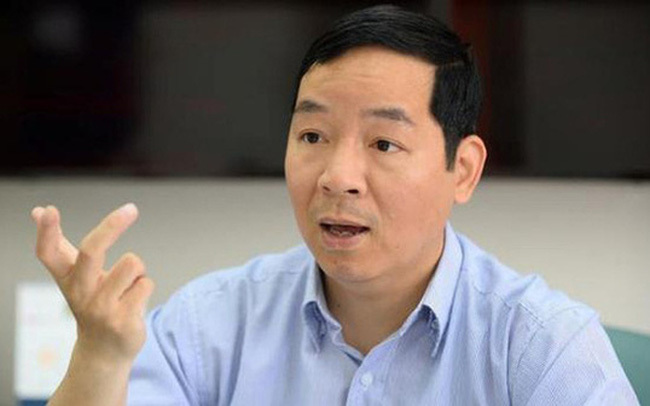In addition to setting clear and appropriate goals, response policies proposed during the Covid-19 pandemic must ensure three principles: targeted intervention, timeliness, and a specific prescription.
Selective intervention as resources are limited
Firstly, policy intervention must have a goal. The Covid-19 pandemic has affected many sectors, industries and groups, but state resources, from financial to administrative and enforcement capacity, are limited. No state can intervene massively, but must set a priority for selective intervention.
Dr. Tu Anh gave an example of the groups that the response policies must target – the people, workers and producers, the industries most affected by the pandemic such as tourism, hospitality, food services, processing and manufacturing industries, as well as types of businesses and business scales most affected by the pandemic.
Similarly, for localities, the policy of the central government should devote the most resources in terms of budget and other support measures to places like Hanoi and Ho Chi Minh City that are at the forefront of the epidemic prevention front.
 |
|
Dr. Vu Thanh Tu Anh: Public investment policies should aim at two goals: both to stimulate the economy and to help foster capacity for recovery.
|
Secondly, when a crisis occurs, timeliness and speed are of significant importance, especially in the context that Vietnam's policy transmission mechanism is relatively slow and its effectiveness is relatively low, hindering the validity and strength of policies. That means policies have to be faster and stronger than usual to be able to meet reality's demands.
Therefore, to a certain extent, we must accept a trade-off between speed with efficiency and equity. For example, we should try to limit the phenomenon of policy profitability, but we also have to accept to some extent that some groups benefit from the policy more than others.
Thirdly, although during the crisis period, many policies and decisions of the state have to use administrative measures, but they still should rely on and obey the laws of the market whenever it is possible, Dr. Tu Anh noted.
In addition, situational emergency policies need a clear prescription. For example, if the policy in place to respond to the situation when the epidemic lasts for two quarters, the policy prescription must be set to two quarters. If the epidemic lasts longer, a decision is made to prolong the validity of the policy because without a clear prescription, the policies are more likely to go overboard and be exploited.
Focus on the medical front and subsidize disadvantaged groups
Dr. Vu Thanh Tu Anh addressed fiscal, monetary and public investment policies - major policy tools to fight recession.
Regarding fiscal policy, he said, the most important public spending today is on health and epidemic prevention. If the medical shock is not stopped, it will inevitably lead to an economic shock. If we accept the temporary economic downturn, we will have strength to fight the epidemic for a long time and possibly recover the economy in the future. If the medical front fails, it will inevitably lead to economic, financial and even other crises.
On the other hand, there should be policies on tax exemption, reduction, postponement and extension (value added tax, corporate income tax) for businesses that are seriously affected by the Covid-19 pandemic. These include exemption, reduction, delay, and extension of fees for businesses and employees such as social insurance, health care, unemployment, trade union ...
“There is a need to increase spending on welfare policies, social subsidies and basic social services. If the Government does not support a large number of the poor and near poor, they will become impoverished, leading to risks of social instability,” Dr. Tu Anh said.
In many forms of social subsidies, the Government can consider supporting people by deducting directly from electricity and water bills - basic utilities, such as a fixed amount of VND100,000 per month for a household's electricity bill. Compared to a percentage subsidy (eg 10% as currently proposed), a fixed monthly subsidy will give the most support to the poor without increasing the budgetary burden.
In terms of monetary policy, the most important thing is to ensure liquidity for the commercial banking system, thereby supporting liquidity for businesses affected by translation.
“Many recommendations say we must lower interest rates. This suggestion is not wrong. The problem is, we have been talking about lowering interest rates for years without realizing it. In order to reduce interest rates, the State Bank of Vietnam is forced to take administrative measures, which are not a sustainable solution. Furthermore, if the interest rate is reduced but businesses cannot access credit, it is better to let them have access to credit with higher interest rates. Therefore, the first priority is to support liquidity, not reduce interest rates," he said.
In addition, it is possible to allow restructuring of corporate and consumer loans, such as rescheduling and deferred repayment, and not naming them in the bad debt list, because this is a risk 'from the sky', not the fault of businesses and the people.
Regarding the exchange rate, Dr. Tu Anh said that Vietnam should be bold and flexible in adjusting the exchange rate to keep its export advantage because all other countries have reduced the exchange rate.
Invest in research and manufacturing vaccines to master the "immune curve"
Regarding public investment policy, the State needs to invest in research, manufacturing and production of Covid-19 vaccines instead of relying on the market and the kindness of others. "If we can do this, we will master the immune curve, not just the infection curve."
Dr. Tu Anh also noted that public investment policies need to target two goals: both to stimulate the economy and to help foster capacity in recovery. Accordingly, information and communication technology (5G), renewable energy and important infrastructure projects, which are currently stalled or delayed due to lack of capital, and online education platforms, remote health check-ups, cashless payments, e-commerce …, should be considered investment priorities.
However, all macro policies, no matter how good they are, if they do not build people's trust, the policy will not work. This is both a challenge but also a great opportunity for the Government.
“One of the top priorities of the Government is to build trust that the Government has acted promptly and effectively in the interests of the people and businesses. Then, the Government will come out of this crisis with a state of confidence and future policies will be much more effective,” Dr Tu Anh said.
Thanh Lam

Trade-offs in the fight against the Covid-19 pandemic
Nearly 500 readers took part in an online seminar with Dr. Vu Thanh Tu Anh, Director of the Fulbright School of Public Policy and Management, on the topic: Covid-19 pandemic: Impacts and the Government’s response.